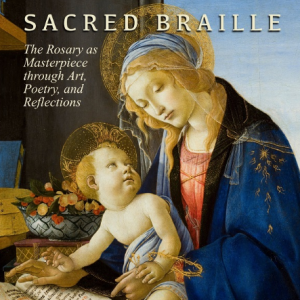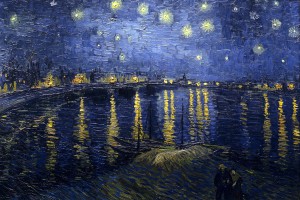Sehnsucht
I’ll admit, I really like the name of this blog. After all, it is inspired by a line in one of my own poems. But if I had to choose another name, and if this word was familiar to more people outside of Germany, I would name it “Sehnsucht.”
Sehnsucht is a German word that literally means: “longing.” Hard to translate literally but is an ardent longing or yearning. As CS Lewis treats it time and again, a key ingredient of this experience is that this longing is never fulfilled but is itself sweeter than any other human desire. We may feel it as our hearts leap watching a sunset over the water, we may feel it when we hear a wistful song. Tonight I gave a lecture and presentation at St. Joseph’s Church in Babylon on the topic: “Holy Longing and Free Will in the Works of CS Lewis and Annabelle Moseley.” A big theme in the works of CS Lewis is Holy Longing. How well Lewis took to heart the words of Augustine, “You Have made us for yourself, O Lord, and our hearts are restless until they rest in thee.”
There are many references to the Holy Longing in pop culture. Lewis, in his classic work, The Pilgrim’s Regress (a pun on Bunyan’s The Pilgrim’s Progress) asserts that God communicates to us in what he calls “pictures,” or things in our society which are not overtly religious but nevertheless appeal to our religious imagination and help us yearn ultimately for God. Today’s featured music is a great pop culture example of Holy Longing reflected in music: U2’s famous anthem, “I Still Haven’t Found What I’m Looking For.” I find their collaboration with the Harlem Gospel Choir particularly moving.
What C.S. Lewis reassures us of is that the constant longing, the deep desire for satiation that never leaves us no matter what promotion or status or honor or possession we attain, is itself evidence that we were made for another world; and therefore nothing of this world could ever completely fulfill us. In that light, we can take comfort in our restlessness.
As a boy and young man Lewis experienced different worldly enjoyments that made him feel longing: what he called “Northernness,” (his love of German mythology, the Norse gods, the works of Wagner, etc.,) and the “idea of autumn” (Beatrix Potter’s books and Squirrel Nutkin, the works of George MacDonald,) mythology from around the world.
These things — the beauty, the memory of our own past — are good images of what we really desire; but if they are mistaken for the thing itself they turn into dumb idols, breaking the hearts of their worshippers. For they are not the thing itself; they are only the scent of a flower we have not found, the echo of a tune we have not heard, news from a country we have never yet visited.”— CS Lewis
In fact, this is why Lewis wrote the Narnia series, to portray “ a country never visited” for the imagination to long for, to train oneself to long for God’s country. So don’t be afraid to long. Yearn, like U2, like St. John of the Cross. Yearn like Van Gogh. You’ll be in good company.

